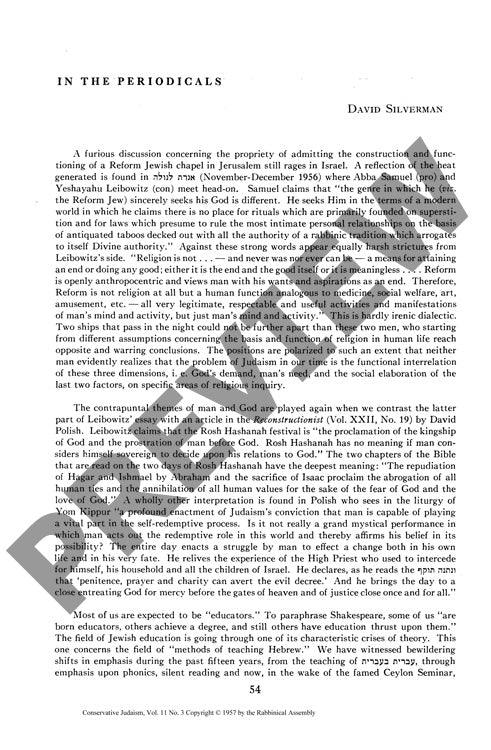In the Periodicals
Couldn't load pickup availability
A fundamental divide emerged in 1950s Jewish religious thought between traditionalists and modernizers, playing out dramatically across the period's theological journals. At the heart of these heated exchanges lay contested questions of religious authority, modernity's role in Jewish practice, and the compatibility of traditional theology with contemporary psychology. Through comparative analysis of Jewish periodical literature, three major controversies illuminate this intellectual struggle. The establishment of a Reform chapel in Jerusalem sparked intense debate between Abba Samuel and Yeshayahu Leibowitz, with Samuel championing Reform Judaism's modern religious approach while Leibowitz condemned its anthropocentric orientation as fundamentally inauthentic. Similar tensions surfaced in liturgical interpretation, where Leibowitz's theocentric reading of Rosh Hashanah stood in stark contrast to David Polish's humanistic understanding of Yom Kippur rituals. Meanwhile, Hebrew language instruction became another battleground, with Edward Nudelman advocating for oral methodology against Joseph Klausner's insistence on classical textual literacy. Harold Schulweis's psychiatric critique of traditional theology further challenged established religious frameworks. These polarized positions ultimately reveal a broader failure within contemporary Judaism to recognize the functional interrelation between divine demand, human need, and social elaboration in religious inquiry.

More Information
-
Physical Description
-
Publication Information
Published 1957
ISBN
-
Publication Credits
David Silverman

